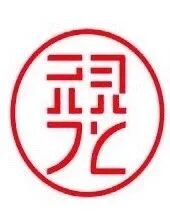熱烈歡迎周念麗教授來到觀化啟蒙園,周教授在學前教育的領域有著非常深厚的學術研究以及多年的實踐經驗。在本年度首次集中學習與交流中,啟蒙園的教育視野也得到一次飛躍性的拓展。

Yesterday the Enlightenment Garden was happy to extend a warm welcometo Professor?Zhou Nianli. Her achievements and research in the field of early childhoodeducation?is bolstered by many years of practical experience. Through herguidance, the educational vision of Guanhua Kid’s Garden has already beenenlightened in this year’s first training?with?the professor.
?
周念麗 教授
觀化啟蒙園專家級導師
華東師范大學教育學部學前教育系
心理教研室主任、教授、博士生導師
Professor Zhou Nianli
Guanhua Enlightenment Garden Expert Education Consultant
East China Normal University Department of Preschool Education and Ministry of Education
Director, Professor, Doctoral Supervisor of Psychology Teaching and Research
教育是一件陪伴教師終身成長的事業,本次邀請到周教授蒞臨現場指導工作,觀化托育團隊展現出的人文素養和專業能力得到了周教授的高度評價,?周教授從不同的維度做出以下點評:

首先,對于托育隊伍的人才選拔方面。當周教授走進觀化啟蒙園,就感受到每位托育人員都是愛孩子的。從活動中時刻關注孩子們的反饋能夠看出給予孩子們眼神與肢體語言上的愛,而這種表現正是周教授在本次教研活動中提到的,0-3歲嬰幼兒需要成人給予正向的陪伴,周教授提出一個例子,在一輛公共交通上,看到一位母親推著孩子時,這位孩子在不停的哭鬧,而家長看似并沒有關注到自己的孩子,反而在低頭盯著自己的手機,這一幕或許并不能說明什么,可是時間過去5分鐘后,這位家長仍舊沒有理會孩子或者做出任何反饋。這種冷漠和無視對于孩子而言是無法理解和接納的,將對孩子造成難以估計的負面影響。在這一階段,成人能夠根據孩子的性格特點做出適合孩子發展的反應,將對孩子今后的發展產生積極的影響。

其次,周教授觀察到啟蒙園的老師們都非常的尊重孩子,在制作蜂蜜柚子茶的活動中,有一位孩子對柚子皮很感興趣,他拿起柚子皮聞、嘗,而老師看到時并沒有打擾他,這位孩子非常享受這樣一個探索的過程,而最終這位孩子拿著柚子皮,做出了打電話的模樣,果然,再多的教學輸入都不及孩子們可以自主的學習和成長。周教授還給出一個案例,兩位性格不同的低幼齡寶寶,在能力方面也有著反差很大的表現,一位寶寶面對新鮮有趣的事物時,克制不住自己總是想要爬過去,即便家長在旁用語言或動作制止也無濟于事。相反,另一位寶寶則在面對相同的事物時,其父母只說了一次“不要過去”,這位寶寶就很乖巧的沒有過去。總結:每位孩子都是有差異性的,在不同孩子的成長階段,要對孩子做出語言能力、肢體發展、氣質性格等方面的觀察和了解因材施教。
?

周教授也提出了家園共育的指導方案,啟蒙園的家庭教育課程正是機構和家長們共同協作的一個重要工具。周教授指出,在日本的托育機構,家長和機構是密不可分的關系,家長要有主動參與到孩子的生活學習中的意識,多了解孩子在機構中的日常,并且積極的做出相應的反饋與配合。有一項研究表明,在0-3歲嬰幼兒階段,家庭成員中頻繁交流的環境下,孩子的語言詞匯量能夠達到1200個字。而普通一點的交流環境,孩子對單詞量的掌握只能達到600字。最不樂觀的則是在家庭關系中,很少談話交流的僅僅在300字這一范圍。可見家庭教育的重要性。
Continuouseducation is an integral part of a teacher’s life-long growth. To guide ourwork here at the Guanhua Enlightenment Garden, we invited Professor Zhou toobserve and evaluate our teaching and environment.? The humanistic qualities and professionalabilities demonstrated by the Guanhua Education team were highly praised by theProfessor. She offered us some important feedback after seeing our activities:
?
Inregards to our nursery team: From the moment she entered thegarden, Professor Zhou could feel that every staff member loved children. During the teacher’s training, the professor said one of themost important facets of teaching the 0-3 age group is for adults to providepositive companionship, which could be seen in the children’s feedback and bodylanguage as we went about our lesson. Professor Zhou gave an example:While riding the metro, she once observed a child crying but the parents didn’tseem to pay attention to their child, staring down at their phone instead.After five minutes, the parent still ignored the child and hadn’t given anyfeedback. Plainly speaking, this is an unacceptable and ignorant approach toparenting, and the subsequent consequences are extensive. During this stage of their lives, adults can respond to achild’s development according to their particular personalities.
?
ProfessorZhou observed also observedthat the teachers in the Enlightenment Gardenrespected the children very much. As the children made pomelo tea, the childrenwere interested in the peel. The children explored the textures and smells andall the while, the teacher simply observed without disturbing him. In the end,one child took the peel and made a phone call. No amount of teaching inputcompares to the independent learning of children at this age. Professor Zhoualso gave a case in which babies with ?Inthe activity of making honey grapefruit tea, a child was very interested ingrapefruit peel. He picked up the grapefruit peel and smelled it, and theteacher saw it. Without disturbing him, the child enjoyed such a process ofexploration very much. In the end, the child took the grapefruit peel and madea phone call. Sure enough, no amount of teaching input was enough for thechildren to learn and learn independently. growing up. Professor Zhou alsoshowed a case of two different babies with differing personalities. Whenpresented with a new an interesting plant, both children were told by theirmothers not to touch it. One baby couldn’t restrain himself from crawling overto it, while the other was quick to ignore it after her mother’s instructions.Every child is different at every stage of growth. ?It is our responsibility asteachers and parents to observe and understand the child’s the languageabilities, physical development, temperament and personality teach inaccordance with their aptitude.?
Professor Zhou also stressed theimportance for home education, giving the teachers of the Enlightenment Gardenthe responsibility to aid parents in family education. She pointed out that inJapan’s childcare institutions, parents and institutions are inseparable.Parents must have the awareness to actively participate in their children’slife and learning, learn more about their children’s daily life, and activelyrespond with feedback and cooperation. A study has shown that a child’svocabulary can reach 1,200 words in an environment of frequent communication withfamily members from the age of 0-3. In an average communication environment,children can only master 600 words. The least optimistic is that in a homesetting, many conversations are only in the range of 300 words. This shows theimportance of family education.
《選擇》一書中提到,協同是一個奇跡。它無處不在,它是整個自然界運作的基本法則。紅杉樹根系交錯,在風中頑強佇立,生長到參天的高度。綠藻和真菌共生而成地依附在光禿禿的巖石上。在自然界中所有生物與人,我們是共存的個體,同時,如果相互協同,整體都大于個體之和。
感謝周教授的悉心指導與分享,期待下個月的相見!